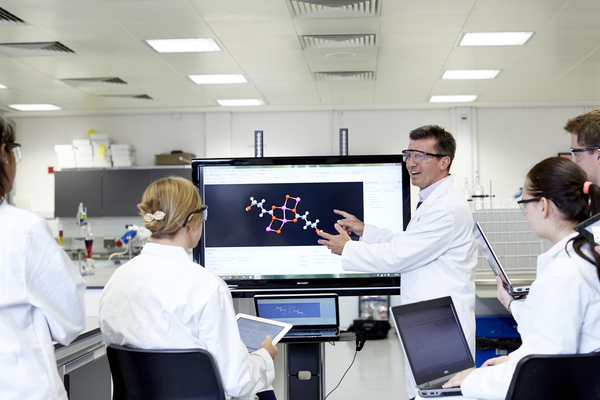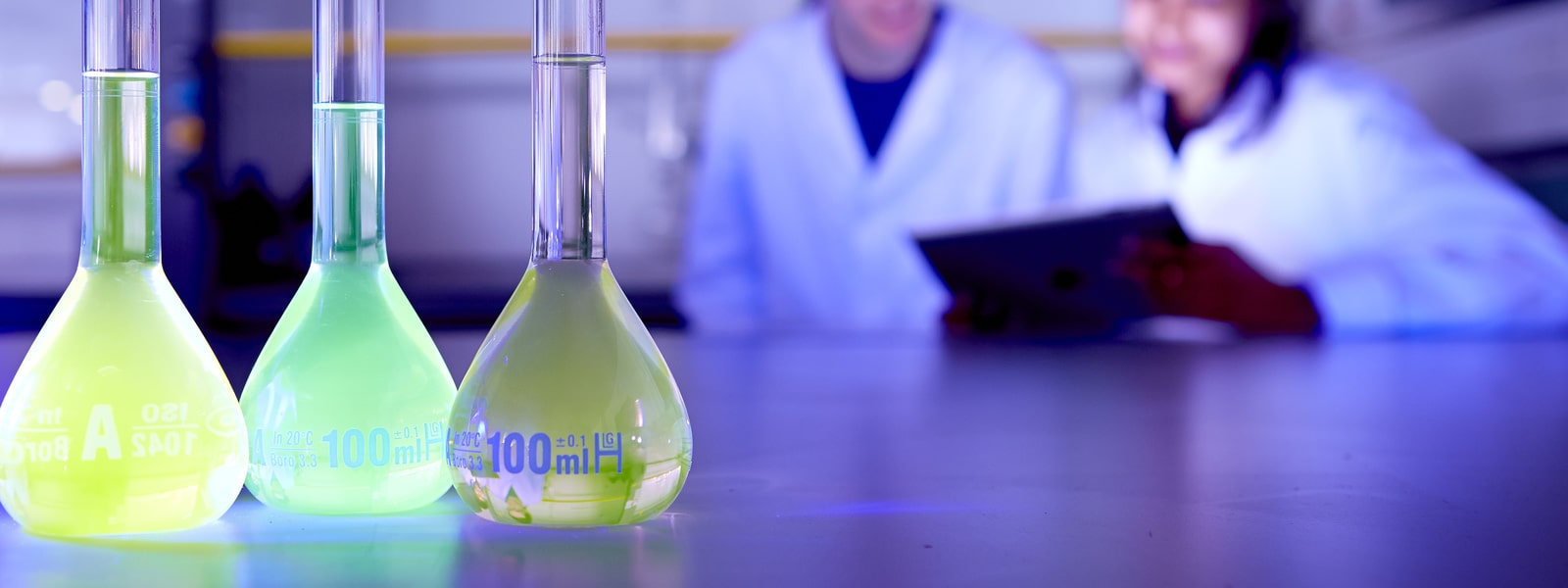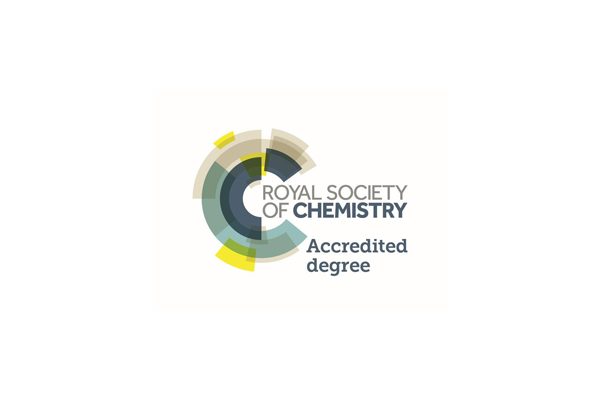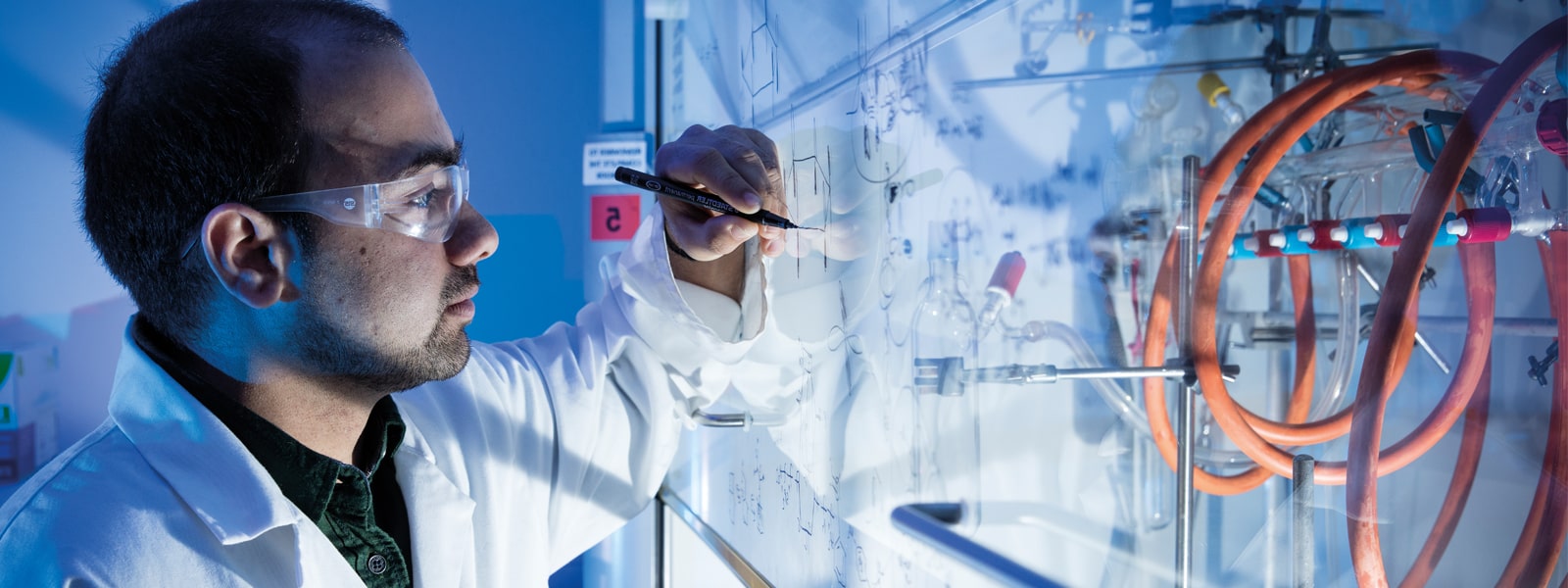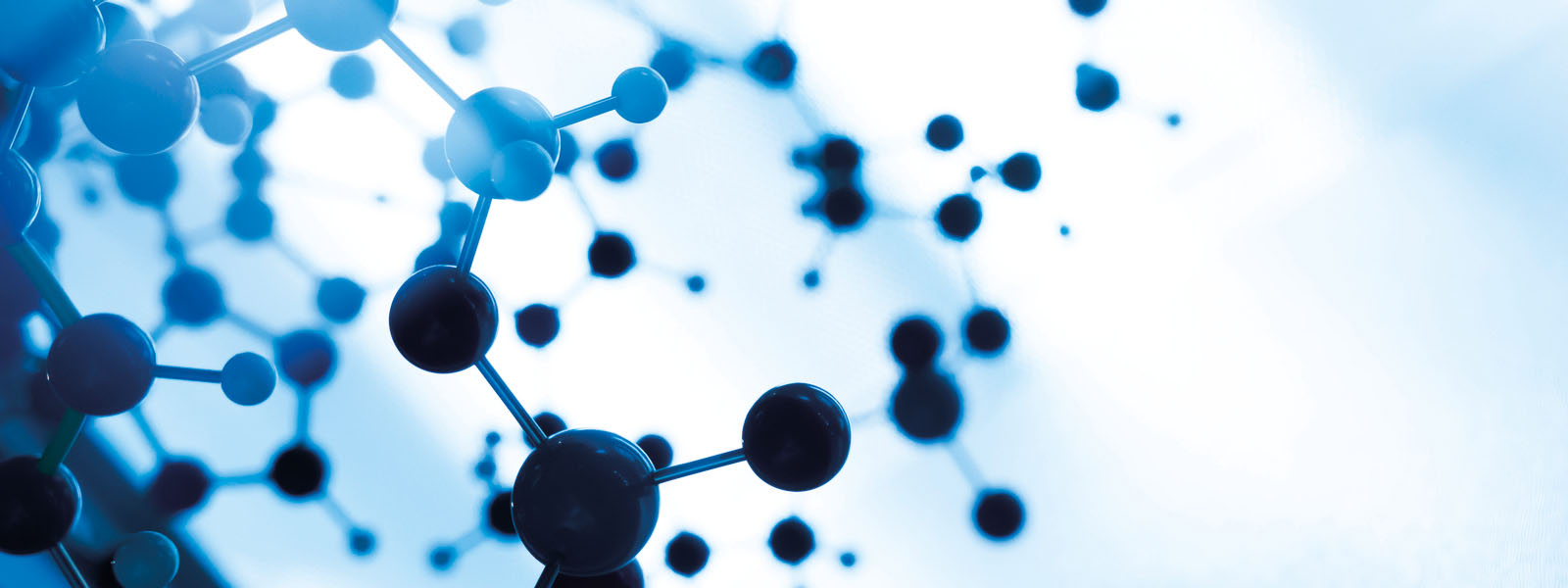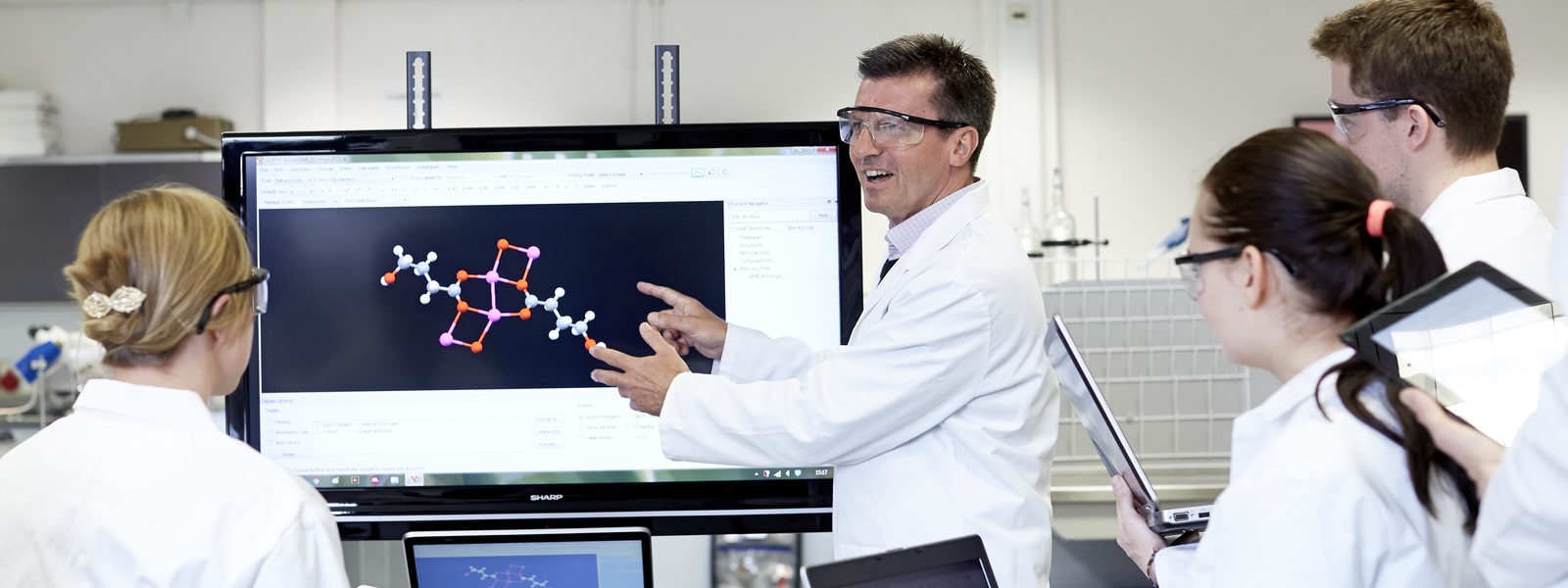Module Overview
This module aims to provide deeper understanding on physicochemical principles behind materials and their properties, exploring advanced concepts in supramolecular chemistry and synthetic routes for more complex organic molecules. Crystals, colloids, discontinuous phases and solid state chemistry concepts are studied in depth to understand physical and chemical properties that give these materials a wide range of application in industry and research.
Module Overview
This module covers in greater depth the thermodynamics and kinetics of processes occurring on solid surfaces. Heterogeneous catalysis is used as an example of how reactions at solid surfaces differ from those in the bulk. Electrochemistry is further developed. Organic chemistry topics are the advanced areas of radical chemistry and orbital symmetry along with heteroelement and organometallic synthesis. Concepts of supramolecular chemistry are covered.
Module Overview
This module provides a context for the chemical, physiological and analytical content introduced at levels 4 and 5. It deciphers the complex and dynamic world context of Drugs of Abuse and intrinsic challenges faced by analytical chemists. It also covers the legislation of controlled substances and chemical precursors as well as the different classes of drugs. Additionally, the synthesis of illicit drugs will be explored to gain an understanding of how this knowledge can be used in drug profiling.
The module also covers the ante and post-mortem toxicology of drugs, relates dose to physiological effect as well as consider appropriate samples and analytical strategies used in forensic toxicology. Supporting and illustrating these concepts, students can undertake the role of an analytical chemist in investigative practical activities which will cover best practice in Drug of Abuse and Toxicology laboratory analyses.
Module Overview
This module builds upon previous practical modules and provides a support for the illustration of the theory delivered in the Core chemistry 3.1 module.
The concept of this module is to offer students the opportunity to experience and dissect the process of designing a material which fulfils specific requirements or needs, its synthesis and its characterisation.
Through this process, the module offers the opportunity to host advanced complex organic syntheses (such as asymmetric synthesis) and supramolecular synthesis.
Additionally, the module introduces students to a series of stereoselective analytical techniques designed to characterise aforementioned materials.
Module Overview
This module offers students the opportunity to undertake an independent programme of research under the supervision of a member of staff. It provides students with the opportunity to demonstrate original and critical thoughts as well as build practical and project-management skills.
Students may select a project from a series of proposals provided by staff, conduct a review of the literature, identify a hypothesis, and design a programme of research to test the hypothesis (under guidance from their supervisor). Students will be expected to manage the project including obtaining relevant ethical approval and conducting COSHH and risk assessments.
Students may analyse and interpret data which will be collected in the laboratory or the field, or using computational sources (e.g. software for mathematical modelling; the internet for the meta-analysis of pre-collected data).
The project will be written up either as a thesis or a scientific paper following closely defined criteria.
Module Overview
The Biological Chemistry module is taught across the disciplines of biology and chemistry and is designed to challenge and develop an awareness of multidiscipline research within students. The overarching aim is to encourage and develop a mode of thinking in students of how chemistry influences biological processes and how this can be exploited by industry and emerging fields.
Module Overview
This module introduces the chemistry and physics of fire and explosives and considers the investigation of fire and explosion scenes with an emphasis on arson and the use of improvised explosive devices. The challenges of evidence recovery, laboratory examination and chemical analysis are covered. This module also considers the various aspects of nuclear terrorism, in the context of global security. The underpinning science and the forensic investigation of nuclear materials for intelligence building is discussed.
